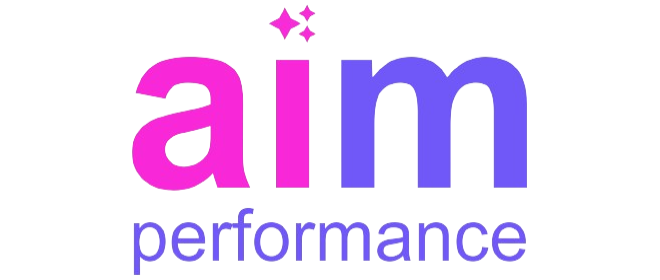In today’s fast-paced industries, blue-collar workforce are increasingly being tasked with handling project-based work. Flexibility and adaptability are key to thriving in this environment. Performance management systems play a pivotal role in ensuring that blue-collar employees are not only prepared but excel in such dynamic work settings. This blog will explore how performance management helps in the adaptability to project-based work for the blue-collar workforce.
The Evolving Nature of Blue-Collar Work
The traditional blue-collar job market is undergoing a significant transformation. Project-based work is becoming a new norm in industries like construction, manufacturing, and logistics. This shift demands that blue-collar workforce possess the ability to adapt to different roles, environments, and timelines on short notice. Performance management systems help bridge the gap by providing continuous feedback and tracking individual progress, helping employees stay agile and ready for any task.
Moreover, project-based work can bring its own challenges, such as changing deadlines, new skill requirements, and varying team structures. By integrating performance management, companies can ensure their blue-collar workforce has the tools and support needed to meet these challenges head-on.
Enhancing Skill Development through Performance Management
Skill adaptability is crucial for success in project-based work. Performance management systems help identify gaps in knowledge and provide opportunities for learning and development. Employees who are regularly evaluated and provided with constructive feedback are more likely to improve their skills and apply them to different projects.
In addition, performance management enables managers to align training programs with specific project needs, ensuring that blue-collar workforce are equipped with the necessary skills to complete each job. This tailored approach not only enhances adaptability but also boosts employees confidence and job satisfaction.
Real-Time Feedback for Rapid Project Shifts
The dynamic nature of project-based work means timelines and objectives often change quickly. Blue-collar workforce need immediate feedback to adjust their work accordingly. Performance management systems offer real-time evaluations, ensuring that employees are not left behind when priorities shift.
Continuous feedback also allows employees to make on-the-spot improvements, enhancing their ability to pivot and adapt quickly in project-based environments. This ongoing communication between managers and employees ensures that the workforce remains aligned with the project’s evolving goals.
Encouraging Collaboration and Team Dynamics
Many projects require a collaborative approach, and blue-collar workforce often find themselves working with new teams in project-based work. Performance management helps foster an environment of teamwork by assessing not only individual performance but also how well employees collaborate with others.
Furthermore, it enables managers to highlight exemplary teamwork and encourage cross-functional collaboration. As a result, blue-collar workforce can adapt to different team structures and communication styles more efficiently, enhancing the overall success of the project.
Customized Goal Setting for Each Project
One of the most powerful benefits of performance management is the ability to set specific, measurable goals for every project. Blue-collar workforce often handle multiple tasks across different projects, and customized goal setting ensures that each employees knows exactly what is expected of them in each scenario.
Through clear and structured performance goals, employees can better manage their time and resources, adapting to the specific requirements of each project. Performance management systems also allow for adjustments to these goals when projects evolve, keeping the workforce flexible and focused on achieving key milestones.
Increasing Accountability and Ownership
Accountability is a significant driver of success in project-based work. When blue-collar workforce are held accountable for their performance, they are more likely to take ownership of their tasks and contribute to the project’s overall success. Performance management systems create a culture of accountability by setting clear expectations and regularly reviewing individual contributions.
By tracking progress and rewarding top performers, performance management encourages employees to take initiative and push themselves to meet new challenges. This sense of ownership enhances their adaptability to ever-changing project demands.
Fostering a Culture of Continuous Improvement
For blue-collar workforce to adapt to project-based work, they must embrace continuous improvement. Performance management systems are designed to support this mindset by encouraging employees to reflect on their performance, identify areas for growth, and strive for excellence in each new task.
This continuous improvement culture fosters adaptability, as employees become more resilient in the face of new challenges and more open to learning new skills. Over time, they develop a growth mindset that prepares them to take on increasingly complex projects.
Building Resilience in a Dynamic Work Environment
Project-based work can be unpredictable. Blue-collar workforces are often required to deal with unexpected issues, ranging from equipment malfunctions to supply shortages. Performance management equips employees with the skills and mental resilience to face these challenges without becoming overwhelmed.
By regularly evaluating performance and providing constructive feedback, performance management helps employees build the confidence and adaptability needed to thrive in a fast-moving, project-based environment. Employees can respond to changes with more agility and focus, ensuring the success of each project.
Aligning Employees with Organizational Goals
Finally, performance management ensures that individual blue-collar workforce remain aligned with the broader goals of the organization. In project-based work, it can be easy for teams to become siloed or lose sight of the company’s overall objectives. Performance management systems keep the workforce connected to the larger mission by reinforcing the importance of each project’s contribution to organizational success.
This alignment not only enhances adaptability but also strengthens the overall cohesiveness of the team. Blue-collar workforce understand how their individual performance impacts the organization, motivating them to adapt their work strategies to meet both project and company goals.
Conclusion
In conclusion, performance management plays a crucial role in enhancing the adaptability of the blue-collar workforce to project-based work. By facilitating skill development, providing real-time feedback, and fostering collaboration, performance management systems ensure that employees are equipped to handle the dynamic challenges of modern projects. Moreover, with customized goal-setting and an emphasis on accountability, employees are empowered to take ownership of their tasks, thereby increasing their engagement and satisfaction.
As industries continue to evolve, embracing project-based work will be essential for success. Organizations that implement effective performance management strategies not only prepare their blue-collar workforce for immediate challenges but also cultivate a culture of continuous improvement and resilience. This proactive approach ultimately leads to better project outcomes and positions companies for long-term success in an ever-changing landscape.











